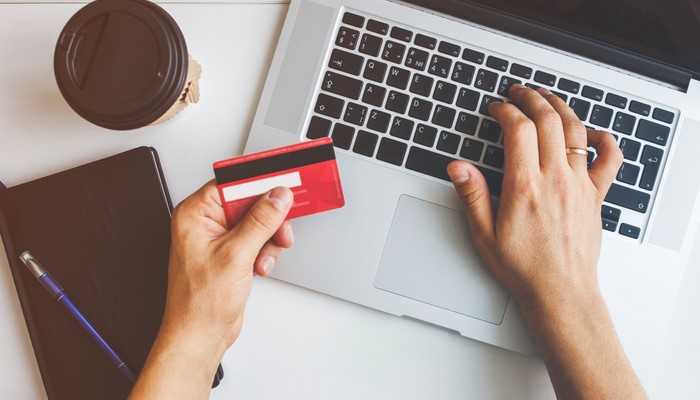In just a few months, COVID-19 has transformed how we live our lives and run our workplaces. Many people are facing job loss or a reduction in income and will experience difficulties in trying to keep up with their debts – credit card bills, mortgage payments, student loan payments, and other consumer loans.
Just like national economies around the world, the US economy has been shut down due to emergency laws and regulations to prevent the spread of coronavirus. It is sputtering back to life, but the restart may be slow. More than 30 million US citizens have had to register for unemployment. The government granted stimulus relief with the CARES Act and sent out 150 million stimulus checks through regular mail to those receiving regular checks for Social Security, Railroad Retirement Benefits, disability benefits, and VA benefits.
Still, Americans are in need of debt relief programs. Many of the major credit card companies and major banks are offering small debt-relief options for consumers hit hardest by the coronavirus outbreak. Let’s take a look at how US government agencies, credit card companies, financial institutions, banks, and credit counseling organizations are helping citizens with their personal financial situations and debt relief.
The CARES Act
The CARES (Coronavirus Aid, Relief, and Economic Security) Act is a federal act that President Trump signed on March 27th, 2020. It suspends payments on federal student loans held by the US Department of Education until September 30th, 2020 (for six months). The payment suspension is automatic, and it suspends both payments and interest from accruing.
Furthermore, the Act prohibits negative credit reporting and stops Treasury offsets, wage garnishments, and collection actions during the COVID-19 emergency.
Thanks to the CARES Act, people who meet certain conditions are eligible to receive a stimulus check.
- An individual with a yearly income of $75,000 or less will receive a stimulus check for $1,200.
- A couple with a yearly income of under $150,000 that files taxes jointly will receive a stimulus check for $1,200 each, for a total of $2,400.
- Married couples will receive an additional $500 per child.
- Individuals or couples with a yearly income between $75,000 and $99,000 ($150,000 and $198,000 jointly) will receive reduced checks.
The government will check your tax return for 2019 or 2018 to determine your eligibility for a stimulus check. If you’re qualified, you will receive the money by check or direct deposit (if you registered your bank account when paying taxes). Individuals or couples who receive IRS refunds through regular mail may not get their stimulus checks until around May 2020. The IRS has had issues verifying the bank accounts for millions of taxpayers who used services like TurboTax, H&R Block, and Jackson Hewitt to prepare their taxes.
On Tuesday, May 12th, House Speaker Nancy Pelosi unveiled the fifth proposed legislation related to the economic contraction and fallout from the coronavirus pandemic – the HEROES Act. Similar to the CARES Act, it would create a new recovery rebate.
A warning to the consumers who are being chased by debt collection agencies – debt collectors could get to your stimulus check before you do.
Paid Sick Leave
The Families First Coronavirus Response Act (FFCRA) is a bill passed by Congress to help employees in small businesses care for their families by using sick leave. The target audience for the bill includes companies with fewer than 500 employees. These companies will get a tax credit on their next year’s tax bill to offset the cost of providing it to their personnel. Thanks to this new law, employees are entitled to two weeks of paid sick leave at 100% of their normal salary (up to $511 per day, for a total of $5,110). Before making any plans, check with your organization’s HR department.
Unemployment Benefits
The average payout for unemployment is $300 per week, and it lasts 26 weeks. Due to the pandemic, that timetable expanded to 39 weeks, and gig workers and freelancers would qualify for the first time. From the COVID-19 standpoint, people who are unable to work because they need to care for children, are quarantined, or sick will receive an added benefit check for $600 a week (which would last four months).
Short Tax Break
The US Treasury Department announced that individuals who owe income taxes for 2019 get another three months to file their taxes. The filing date was moved to July 15th, giving people more time to deal with the financial problems caused by the coronavirus, rather than paying the government taxes.
401(k) Penalties Waived
One of the stimulus measures approved by the Senate allows savers under age 59.5 to take up to $100,000 from their retirement plans. It is considered an emergency withdrawal, and the 10% early-withdrawal penalty has been waived. However, before making a withdrawal, you should read the fine print because you may be doing more harm than good. People shouldn’t view this relief as a freebie, because you are always better off using other debt-relief options before using your retirement savings.
Large Loans or Grants for Big Businesses
Organizations with more than 500 employees severely affected by the coronavirus pandemic will receive large loans or grants. For example, the passenger airline industry will get $25 billion in loans (they’re expected to pay back) and $25 billion in grants (they are not expected to pay back). Also, there’s $17 billion in loans intended for companies considered essential to national security, as well as $425 billion for other businesses, cities, and states.
Small Business Paycheck Protection Program
The Paycheck Protection Program was established to help small businesses (with fewer than 500 employees) stay open and pay their employees for 8 weeks. The program got a $310 billion boost from the US Congress to provide financial aid through small business loans. If the company follows certain conditions (such as paying health insurance premiums, paying rent and utilities, using the money to cover employee salaries, and not firing its workers), their business loans could be forgiven.
The US Congress added another $310 billion in funding for the Paycheck Protection Program, which was considered a significant plus for small business owners.
Once it was revealed, the Paycheck Protection Program came under immediate fire because food restaurants (e.g., Ruth’s Chris Steak and Shake Shack) received more than the $10-million-dollar line of credit, despite not being considered small businesses.
Debt-Relief Options from Credit Card Companies and Banks
Credit card companies, banks, and other private institutions have jumped in first in offering debt-relief programs for individuals affected by the economic fallout of COVID-19. The most common messages we hear from big credit card companies and banks for people negatively affected by the coronavirus are:
- Stay home and rely on mobile app banking services to keep track of your accounts and pay bills;
- If you need any help with either small business or personal accounts, call our customer service department.
Most of them are offering advice on debt settlement and help with managing your credit card accounts online, and they will work with affected consumers on developing payment programs. What people are looking for during these times is to not incur a late fee on their monthly payments or maybe a way to not take on more credit card debt for a missed payment. However, many credit card companies don’t offer specific details about what they may do in order to support affected customers. The best thing to do is to visit their websites or call to get answers to your questions.
All that said, the banks are not known for working with consumers to alleviate the pressure of credit cards or other high interest products, as that is how they make their money. We expect payment deferrals to be short lived, and it is unlikely that a bank will do anything for your overall balance owed or interest rates beyond a short deferment period. This is where debt settlement companies come in.
Access to Loans from Small Business Administration
Considering the economic lifeline in most communities, the Small Business Administration is trying to prevent COVID-19 from drowning small businesses. It is offering low-interest capital loans of up to $2 million for nonprofit agencies and small businesses affected by the coronavirus pandemic. Nonprofit agencies would pay 2.75% interest on the loans, and small businesses would pay 3.75% for terms of up to 30 years. More information is available on their website.
Help for Healthcare Centers and Hospitals
The stimulus bill granted $100 billion in help for healthcare centers and hospitals that were affected the most by the virus outbreak. The money is intended for helping them support emergency operation centers and purchase testing supplies and protective gear for healthcare workers. Public health agencies and community health centers will also receive funding to prepare for the next crisis.
Some of the agencies that are expected to play a critical part in the recovery from COVID-19 received help from the government’s stimulus package. Local transit systems will receive $25 billion, SNAP (the food stamp program) will get $25 billion to help the hungry, the Federal Emergency Management Agency will get $45 billion, while local schools and colleges will receive $31 billion.
If you are dealing with debt, you should know that there are various credit counseling and debt relief strategies at your disposal. Churchill Credit Solutions is here to provide debt management guidance and help you assess your financial situation before you settle for a debt relief option. Coping with debt is hard enough, and it’s even harder to do during these vulnerable times of disruption and economic unrest. Feel free to contact us for more information on debt management plans, repayment plans, debt consolidation, debt settlement programs, or to request a consultation to discuss your unique personal finance situation.



